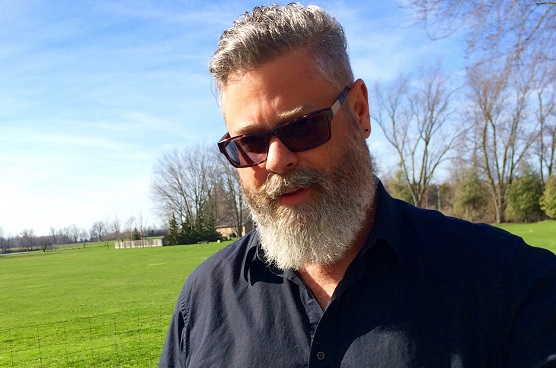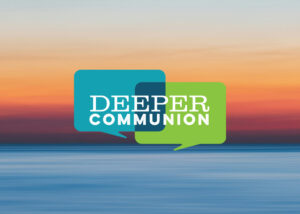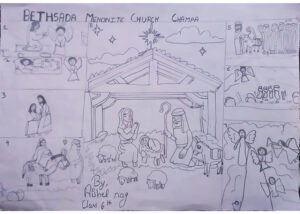A peculiar thing happened to me last Sunday while I was on holidays. I felt a strong desire to attend a church service. Curious, to say the least. You see, by the time summer arrives, I’m usually churched out. As a pastor, church is not only my work life but a significant part of my personal and social life, too.
Sabbath, for me, requires rest from church once in a while. A short break from all forms of church helps me regain perspective, and re-establish an appreciation and passion for church life and ministry. As they say, “Absence makes the heart grow fonder”.
During summer holidays I prefer to worship in the temple of creation. The ideal cathedral for me is hiking through rocky green wilderness or kayaking along a meandering river. Solitude in nature is where I most deeply connect with Spirit.
For instance, two weeks ago while kayaking alone over the waves of Lake Superior I sensed the “Spirit of God hovering over the face of the waters.” I became acutely aware of the paradoxical nature of “God encounters” as I simultaneously felt the familiar love and peace of Christ while being overwhelmed by the incomprehensible mystery of the Most High filling me with “holy fear and trembling.” I opened my mouth to utter some prayer of response, but words escaped me.
Sacred moments often invite us to surrender our love of words, to lay them down on the sacrificial altar of God’s presence. On holy ground, words get in the way, distracting our focus with the futile activity of naming the unnameable. Silence and “practising presence” are the most fitting responses in such circumstances. Worshipping in spirit and truth requires us to yield to the divine flow, allowing our senses and souls to soak—be baptized—in the Great I Am without analyzing or labelling what we’re experiencing. As Kenny Rogers reminds us, “There’ll be time enough for countin’, when the dealin’s done.” Save the reflection and theologizing for later. In the moment, just be present.
The greatest temptation after such encounters is to pursue the experience rather than the God we’ve experienced. This insidious substitution often goes undetected in our worship. I know I often find myself trying to recreate spiritual experiences. I become a “holy moment” chaser, like a storm chaser tracking down a tornado. The truth is, we can’t predict when and where the Spirit will move to reveal God-self to us and we can’t make “God encounters” happen no matter how hard we pray or how passionately we worship.
The hard reality is that we’re not in control. We can’t pull the right strings and make God dance to the beat of our drum. Holy moments are intimate events with God, and forced intimacy is inappropriate in any relationship. Holy moments can’t be forced or coerced. They come when they come.
The good news, of course, is that we don’t need to chase God, because God is seeking us. Our spiritual work is to become more available to God’s presence.
Holy moments usually come when we least expect them. Like a “thief in the night.” They’re more likely to happen Wednesday afternoon at work or Thursday evening in the grocery store than on Sunday morning while singing your favourite praise song or hymn. Spiritual disciplines and worship are not intended to make God moments happen or convince God to “show up.” The work of faith is to make ourselves alert and available to God’s presence more every day, so we recognize when God comes to us in the face of a stranger in need, a lonely co-worker, our spouse or Lake Superior.
So what does this have to do with my peculiar longing to attend church during my holidays?
I’ve realized I tend to seek God’s presence in solitude more than in community. I believe my encounter with God on Lake Superior, followed by my sudden desire to go to church a few days later, was divine Spirit reminding me of my need for solitude and community.
Parker Palmer’s definitions for solitude and community are helpful. For him, solitude isn’t about being away from people, it’s about “being fully present to ourselves whether or not we are with others.” Community doesn’t necessarily mean being with others, “it means never losing the awareness that we are connected to each other . . . it is about being fully open to the reality of relationship whether or not we are alone.”
Introverts often undermine their need for community and extroverts typically undervalue their need for solitude. I’m convinced that we all need both solitude and community to grow, mature and experience the fullness of God.
Troy Watson is pastor of Avon Mennonite Church in Stratford, Ont.
See also:
Experiencing the good news
Experiencing God
Nurturing spirituality








Leave a Reply
You must be logged in to post a comment.